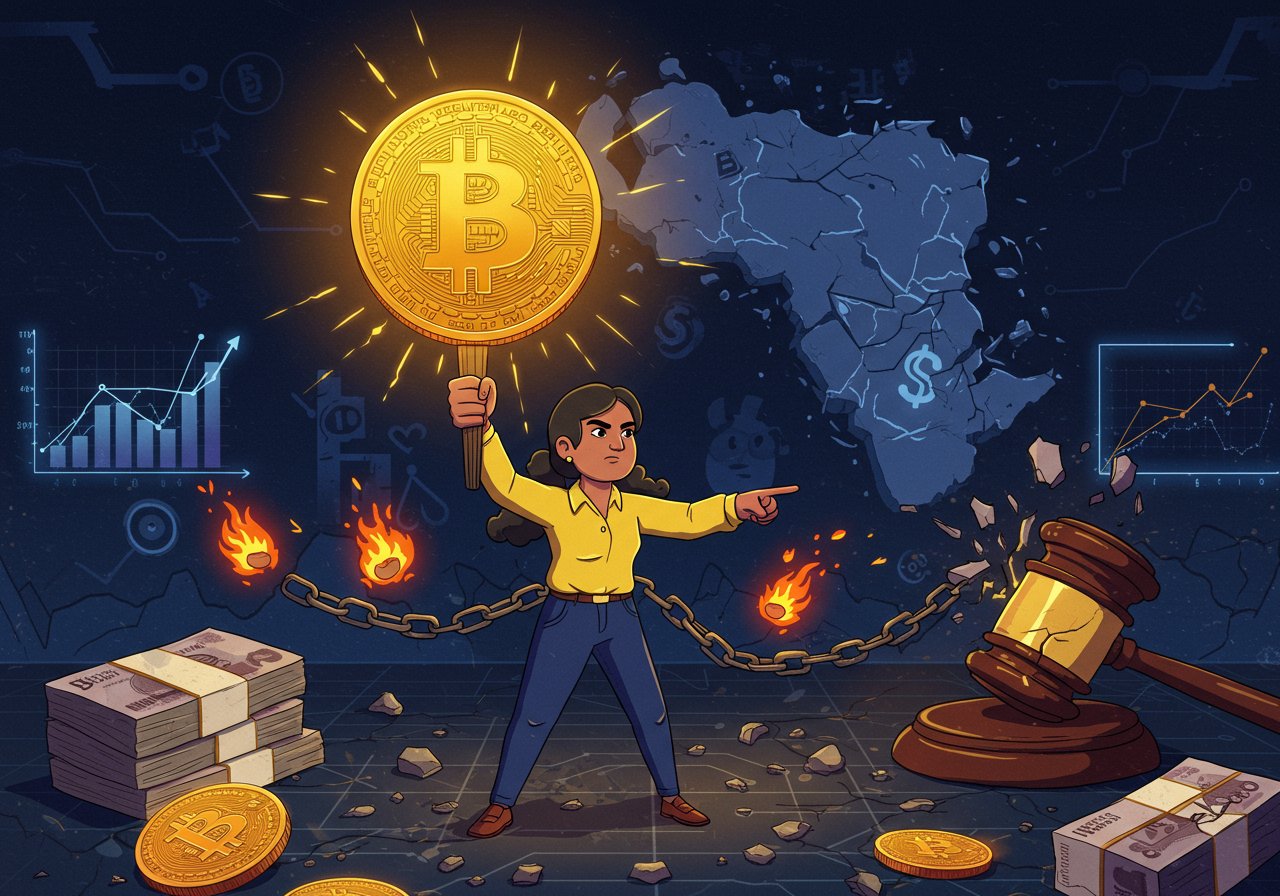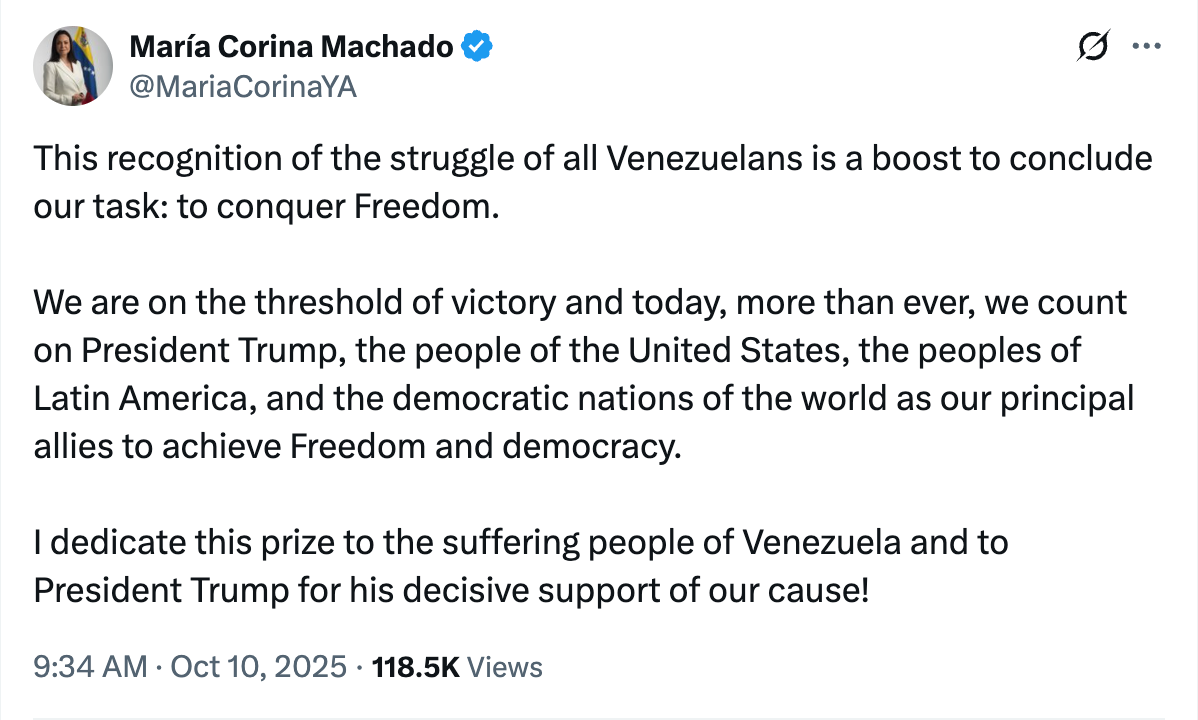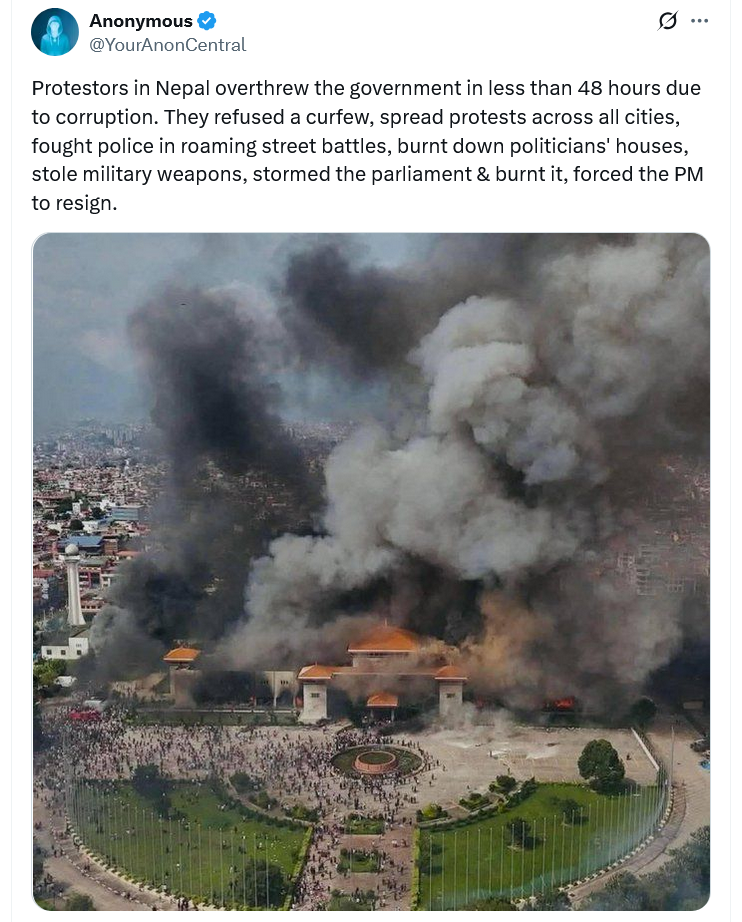
Bitcoin: A Lifeline in Times of Crisis
The 2025 Nobel Peace Prize has been awarded to María Corina Machado, a prominent Venezuelan human rights activist and political opposition leader. While the recognition celebrates her efforts in promoting democracy, it also shines a light on Bitcoin‘s role as a vital tool for individuals navigating political and economic turmoil.
Machado, a vocal advocate for Bitcoin, has publicly acknowledged its significance as a ‘lifeline’ for Venezuelans grappling with hyperinflation and government overreach. Her stance underscores the growing recognition of Bitcoin‘s potential as a decentralized, censorship-resistant technology that can empower individuals and circumvent oppressive financial controls. This marks a pivotal moment, as it links the burgeoning crypto space to the fight for human rights at the highest level.

Bitcoin Bypasses Oppression: A Case Study in Venezuela
Venezuela‘s economic crisis has been a crucible for Bitcoin‘s adoption. With the local currency suffering from rampant inflation, many Venezuelans have turned to Bitcoin to protect their wealth and access global markets. Bitcoin‘s decentralized nature makes it impervious to government-imposed exchange rates and capital controls, providing a haven for those seeking financial independence.
Machado has highlighted how Bitcoin is more than just a financial instrument; it has become a means of resistance. It provides an alternative to government-controlled financial systems, allowing citizens to bypass restrictions and maintain control over their assets. This is a key factor that has elevated its status from a humanitarian tool to a means of fighting oppression.
Peer-to-Peer Technology: Empowering Protest and Dissent
The use of peer-to-peer technologies, like Bitcoin, extends beyond individual financial protection. They are increasingly being utilized by political opposition movements and activists fighting against government overreach. During the Canadian trucker convoy protests, for example, Bitcoin served as a crucial funding mechanism after the government froze the protesters’ bank accounts.

Furthermore, the story of protestors in Nepal employing encrypted messaging apps during a social media ban shows how technology can be used to create alternative channels for communication and mobilization when traditional channels are shut down. These examples demonstrate the potential of Bitcoin and other decentralized technologies to resist censorship and to bolster freedom of speech.
The Future of Freedom and Cryptocurrency
Machado’s Nobel Peace Prize win is a significant validation of Bitcoin’s potential as a tool for social and political change. As the global landscape evolves, with increasing censorship and economic instability, Bitcoin‘s role in empowering individuals and promoting freedom is likely to grow. The intersection of cryptocurrency and human rights represents a powerful force for change, signaling a new era of resistance.


